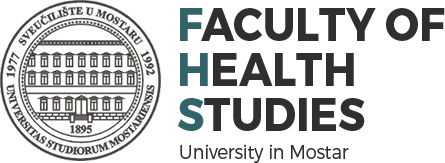The study of sanitary engineering examines solutions of public health problems.
A study program, which includes all segments of ecosystem and factors influencing people's health was made just for this purpose.
In cooperation with other health profiles, it is necessary to notice, define and sanitize environmental factors, which can affect individual's health and the health of a wider population, and conduct general and targeted health enlightenment of the population for advancement of health of a wider population.
Since the programs and projects for advancement and protection of environment, which were passed by WHO, United Nations' Environment Program (UNEP), Organization for food and agriculture of UN (FAO) and other bodies of UN, are more of a technical than medical nature, the Expert Committee for education of engineers for environmental health (ECEEEH, 1967.) has highlighted the need for education of sanitary engineers and sanitary staff in the ministries of health which would effectively confront the problems of water supply, waste disposal, diet hygiene, disease control, improving conditions of living etc.
Competences
After finishing the study, according to this program, the students will be able to promote professional competences which are preferred by the European Association for Public Health (ASPHER), which are also listed below:
-Developing student's knowledge in the areas of environment and health;
-Students will be capable of recognizing and describing expositions of people to noxas in environment;
-Identification of health hazards;
-Defining a sustainable growth in the means of environmental and professional health;
-Understanding ethical and legal principles which are applied to environmental and professional health;
-Explain new trends in legislation;
-Understand the basic concepts of environmental and professional health based on evidence;
-Evaluation of health and safety risks, introduction of preventive measures;
-Considering ways of developing strategies of prevention for targeted groups based on specific risks;
-Ability to write professional reports about the problematics of environment and health;
-Ability to participate in public debates;
-Ability to inform the public about the concepts of risk;
-Ability to participate in the activities of promoting health and disease prevention;
-Taking samples for laboratory analyses;
-Understanding the methods of laboratory measuring;
-Recognize which laboratory methods are appropriate for identifying health risks;
-Performing sanitary inspections.
